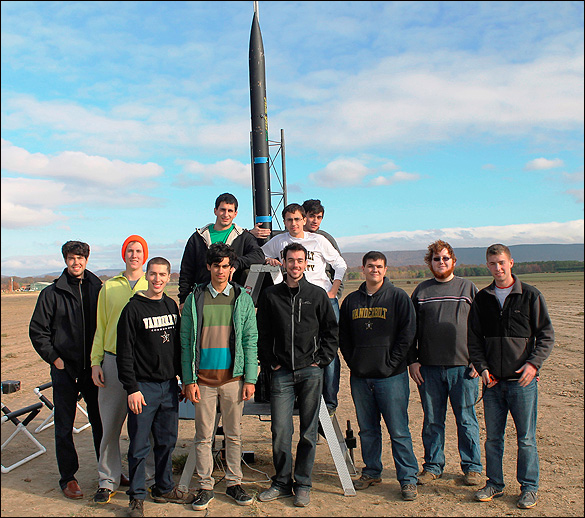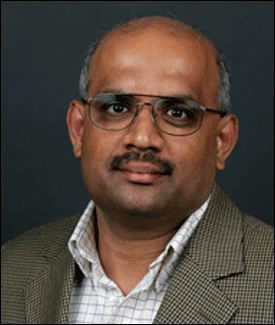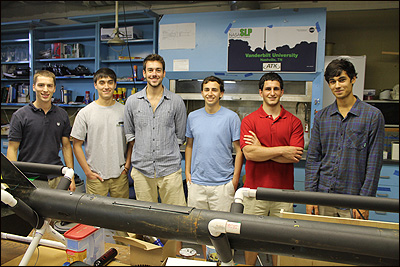
Organizers of the NASA Student Launch Program (SLP) have announced a final field of 27 collegiate teams to compete in the space agency’s 2013-2014 national rocketry challenge, and have introduced a number of changes to the program.
This is the seventh year the Vanderbilt Aerospace Club, the 2012-2013 national champion, has been selected for the competition, along with teams from Arizona State, Auburn, Cornell, Northwestern, Notre Dame, Purdue, and the universities of Illinois, Alabama, Florida and Colorado.
Formerly called the University Student Launch Initiative (USLI) by NASA, the rocket competition this year will be held in Salt Lake City, Utah, May 17-18; a change from the perennial launch location near Huntsville, Ala., each April. The winning team will be announced in mid-June.
A more significant change is a shift toward a research program rather than a rocket experiment challenge.
Teams will compete in various categories and a $5,000 first-place award will go to the overall winner of the competition. Categories include payload and rocket designs, project reports and design reviews, vehicle flight performance, along with outreach activities and website design.
In another departure from past competitions when all rockets were to aim for a mile-high altitude, this year teams will design rockets that can fly to a predetermined altitude appropriate to deliver its research payload, but not to exceed an ceiling of 20,000 ft. Rockets also will carry a technical payload that will assess in real time the potential landing hazards for the rocket.

“For the science payload, the Vanderbilt team will design a liquid fuel slosh abatement system and validate it through a performance study of a high-pressure, opposing fuel-jet injection ramjet engine ignited during flight,” said A.V. Anilkumar, professor of the practice of mechanical engineering and faculty adviser and director of the club.
Anilkumar said the Vanderbilt rocket will fly to a target altitude of about 5000 ft. to accomplish its mission objectives. “Instead of flying two ramjet engines on either side for rocket flight stability, we will modify one of them into a camjet, which will house the camera and all the electronics for landing hazard detection and analysis.”
“These are unique kinds of projects that defy sorting. If one were to work in the aerospace industry, it is possible that over the long term one might work on a complete project like this. Instead, here we compress the entire project into a period of eight months, and it is non-stop work. Our students have embraced the extreme challenges associated with field testing their designs, and have been equally excited about conducting unique community outreach activities,” Anilkumar said.
Vanderbilt teams have won several awards past NASA University Student Launch Initiative competitions. In 2013 the team won the coveted overall championship. Between 2010 and 2013, the team won four back-back payload design awards and a host of other awards, including the closest to altitude award (2008), website design award (2010) and the educational engagement award (2012). The club also has received special awards from the Tennessee Section of the American Institute of Aeronautics and Astronautics (AIAA) for outstanding success at the USLI competition.

The 15-member Vanderbilt Aerospace club is comprised of three groups: a core mechanical engineering design team of six seniors who are fabricating the payloads and the rocket; a group of mechanical engineering underclassmen who will assist in field and outreach activities; and graduate students who are engaged in design, topical background search, and outreach coordination.
“We are very excited to participate in the NASA Student Launch competition. It is a challenge that will not only develop our engineering and technical skills, but also develop our communication and teamwork skills. The process of designing and building a flying rocket with novel payloads is a very rewarding experience,” said club president and mechanical engineering senior Brandon Dimmig.
A trial rocket flight a few weeks ago produced exciting results, according to Patrick Foran, a design team member. “We flew a flow visualization package to examine the fluid behavior during the rocket’s free fall. The data is just amazing; no amount of ground-based testing prepared us for the results of fluid behavior in zero-g flight. We now have all the ingredients to perfect the fuel tank design in the next two developmental flights.”
Webmaster Shivaprem Bernath, a space exploration enthusiast, has created a robust site. “I decided to include a Space blog in our redesigned website. It is a one-stop resource for all things new in aerospace. We welcome the Vanderbilt community to visit our website and read about the progress of our project and the various other activities like outreach to middle Tennessee schools.”
William Emfinger, a graduate student in the Department of Electrical Engineering and Computer Science, is working with the rocket design team on a landing hazard detection system. “My thesis research focuses on satellite clusters as a distributed space-based application platform. The design, implementation, verification and testing of the rocket’s hazard detection payload provides me with both preparation for working in the aerospace industry and the joy of solving the many difficult problems during a payload’s testing and development.”
Carl Hall, a mechanical engineering graduate student, leads the combustion engineering research efforts for the team. “I specialize in the study of combustion phenomena. The extension of these studies to the design of newer fueling mixtures in practical combustors, like the biodiesel-fueled ramjet engine being test flown on our rocket, is both challenging and exciting.”
Toshia Wrenn, a graduate student in chemistry, is the team’s outreach coordinator. “I am currently researching third-generation solar cells, and I am also passionate about science education and outreach. It is a pleasure to bring hands-on rocketry and Newtonian physics education to rural students in middle Tennessee and to foster a love of learning in middle school students and their teachers.”
The Vanderbilt Aerospace Club is supported by the Tennessee Space Grant Consortium and the Department of Mechanical Engineering.
Fun experiments fan middle schoolers’ interest in engineering
Vanderbilt takes top prize in NASA student rocket launch challenge
Team’s payload design tops fourth consecutive year at NASA rocket contest
Engineering, Peabody effort lands NASA STEM outreach award
2013-2014 Student Launch Teams
Arizona State University, Tempe, Ariz.
Auburn University, Auburn, Ala.
California State Polytechnic University, Pomona, Calif.
Citrus College, Glendora, Calif.
Clark College, Vancouver, Wash.
Cornell University, Ithaca, N.Y.
Florida A&M University, Tallahassee, Fla.
Mississippi State University, Starkville, Miss.
Missouri University of Science & Technology, Rolla, Mo.
North Carolina State University, Raleigh, N.C.
Northwest Indian College, Bellingham, Wash.
Northwestern University, Evanston, Ill.
Purdue University, West Lafayette, Ind.
University of Alabama, Tuscaloosa, Ala.
University of Alabama in Huntsville, Huntsville, Ala.
University of Central Florida, Orlando, Fla.
University of Colorado – Boulder, Boulder, Colo.
University of Florida, Gainesville, Fla.
University of Hawaii – Community College, Kane’ohe, Hawaii
University of Illinois Urbana-Champaign, Urbana, Ill.
University of Louisville, Louisville, Ky.
University of North Carolina Charlotte, Charlotte, N.C.
University of North Dakota, Grand Forks, N.D.
University of Notre Dame, Notre Dame, Ind.
University of Puerto Rico Mayaguez, Mayaguez, Puerto Rico
University of South Alabama, Mobile, Ala.
Vanderbilt University, Nashville, Tenn.